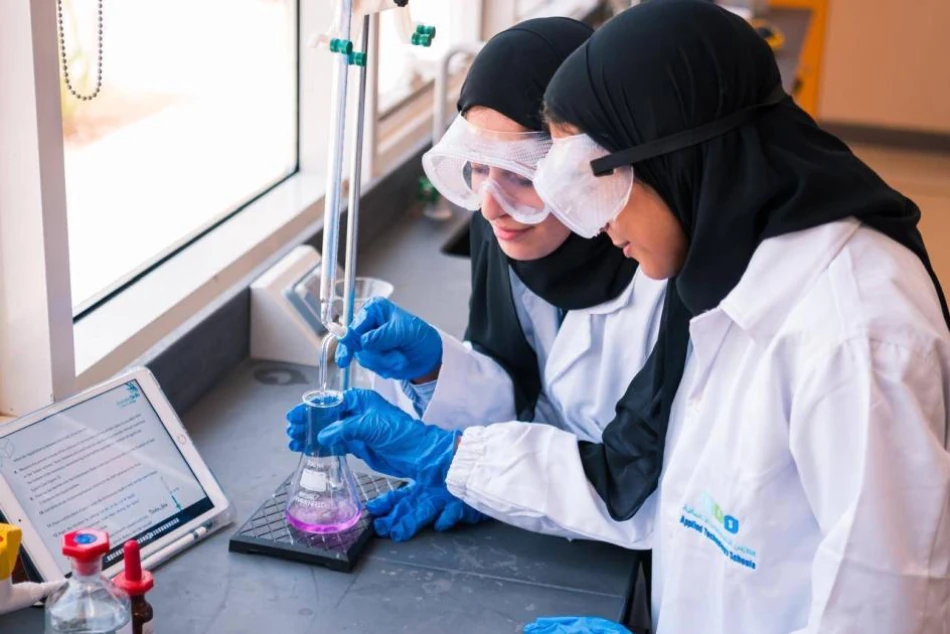
Revamped Policies for Promotion and Evaluation at Applied Technology Schools
UAE Applied Technology Schools Tighten Academic Standards to Build Workforce-Ready Graduates
The UAE's Applied Technology Schools have introduced stricter promotion and admission policies for the 2025-2026 academic year, signaling a strategic shift toward producing higher-caliber graduates aligned with the nation's economic diversification goals. The new framework emphasizes rigorous academic performance while maintaining accessibility for Emirati students, reflecting broader regional efforts to develop local talent in technical fields.
Weighted Grading System Raises the Bar
Under the new student charter guidelines, advancement to higher grades now requires students to pass all subjects according to a weighted point system. Core annual subjects carry three weighted points each, while semester-based courses count for one point. Notably, physical education and Chinese language, while not factored into the point calculation, remain mandatory for promotion—highlighting the schools' emphasis on holistic development and international competitiveness.
This weighted approach mirrors assessment reforms seen in Singapore's technical education sector, where specialized institutions have similarly restructured grading to better reflect industry demands.
Second Chances Come with Strict Limits
Remedial Examinations for Minor Failures
Students failing fewer than 12 weighted points receive opportunities for remedial examinations in their weak subjects. However, those falling short in 12 or more weighted points must repeat the entire academic year—a policy that underscores the schools' commitment to maintaining educational rigor.
One-Time Repetition Rule
Perhaps most significantly, students can only repeat a year once during their entire educational journey, and only with the school director's approval plus academic monitoring throughout the repeat year. This policy prevents prolonged academic stagnation while providing genuine second chances for struggling students.
Graduation Requirements Reflect Industry Standards
The graduation criteria reveal the schools' practical orientation toward workforce preparation. Students in grades 6-8 must maintain a 50% average, while those in grades 9-12 face a higher 60% threshold. Additionally, all graduates must complete 100 hours of community service through the "Fazaa" volunteer program, integrating civic responsibility into technical education.
These service requirements align with similar initiatives across the Gulf states, where governments increasingly view community engagement as essential for developing well-rounded professionals in technical fields.
Admission Priorities Support Emiratization Goals
The admission framework clearly prioritizes UAE nationals and children of Emirati mothers, reinforcing the government's broader Emiratization strategy. Prospective students must pass entrance examinations and personal interviews, with age limits enforced except in exceptional circumstances approved by the director general.
Importantly, education remains free with all expenses covered except school uniforms, ensuring financial barriers don't impede access to technical education for Emirati families.
Strategic Implications for UAE's Economic Vision
These policy changes represent more than administrative adjustments—they signal the UAE's determination to build a technically skilled local workforce capable of supporting its post-oil economy. By raising academic standards while maintaining accessibility for nationals, the Applied Technology Schools are positioning themselves as crucial pillars in the country's human capital development strategy.
The emphasis on flexibility in transfers between schools and branches suggests recognition that students may need to pivot between specializations as they discover their strengths and interests. This adaptability could prove essential as the UAE's economy continues evolving toward knowledge-based industries, renewable energy, and advanced manufacturing.
For investors and businesses operating in the UAE, these educational reforms indicate a more qualified pipeline of local technical talent emerging in the coming years, potentially reducing dependence on expatriate workers in specialized roles.
Most Viewed News

 Omar Rahman
Omar Rahman






